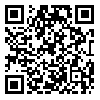Volume 18, Issue 50 (3-2018)
jgs 2018, 18(50): 219-234 |
Back to browse issues page
Download citation:
BibTeX | RIS | EndNote | Medlars | ProCite | Reference Manager | RefWorks
Send citation to:



BibTeX | RIS | EndNote | Medlars | ProCite | Reference Manager | RefWorks
Send citation to:
mohammadyary F, pourkhabbaz H, aghdar H, Tavakoly M. (2018). Empirical modeling potential transfer of land cover change pa city with neural network algorithms. jgs. 18(50), 219-234. doi:10.29252/jgs.18.50.219
URL: http://jgs.khu.ac.ir/article-1-2580-en.html
URL: http://jgs.khu.ac.ir/article-1-2580-en.html
1- Behbahan Khatam Alanbia University of Technology, Behbahan Khatam Alanbia University of Technology
2- Behbahan Khatam Alanbia University of Technology, Behbahan Khatam Alanbia University of Technology ,pourkhabbaz@yahoo.com
3- Shahid Chamran University of Ahvaz, Department of Earth Sciences, Faculty of Science, Shahid Chamran University of Ahvaz
4- Associ profe of Geography Tarbiat Modares University of Technology, Tarbit modres University of Technology
2- Behbahan Khatam Alanbia University of Technology, Behbahan Khatam Alanbia University of Technology ,
3- Shahid Chamran University of Ahvaz, Department of Earth Sciences, Faculty of Science, Shahid Chamran University of Ahvaz
4- Associ profe of Geography Tarbiat Modares University of Technology, Tarbit modres University of Technology
Abstract: (8347 Views)
Land-use change is one of the most important challenges of land-use planning that lies with planners, decision-makers and policymakers and has a direct impact on many issues, such as economic growth and the quality of the environment. The present study examines the land use change trends in Behbahan city for 2014 and 2028 using LCM in the GIS environment. Analysis and visibility of user variations, carried out in two periods of Landsat satellite images of 2000 (ETM + sensor) and 2014 (OLI sensors), and land cover maps for each year. The transmission potential modeling was performed by using the multi-layer perceptron artificial neural network algorithm using six independent variables and the distribution of changes in user usage were calculated by Markov chain method. The results of the prediction showed that the most reduction in the changes is the degradation of the rangelands and the greatest increase in the area of agricultural use. According to the horizontal tabulation results of the 2028 map, it can be stated that from the total area of the area 28336.22 hectares of land were unchanged and 33223.78 hectares of land use change. Also Rangeland and forest degradation during this time period can be a danger to urban planners and natural resources.
Type of Study: Research |
Send email to the article author
| Rights and permissions | |
 |
This work is licensed under a Creative Commons Attribution-NonCommercial 4.0 International License. |

This work is licensed under a Creative Commons — Attribution-NonCommercial 4.0 International (CC BY-NC 4.0)






